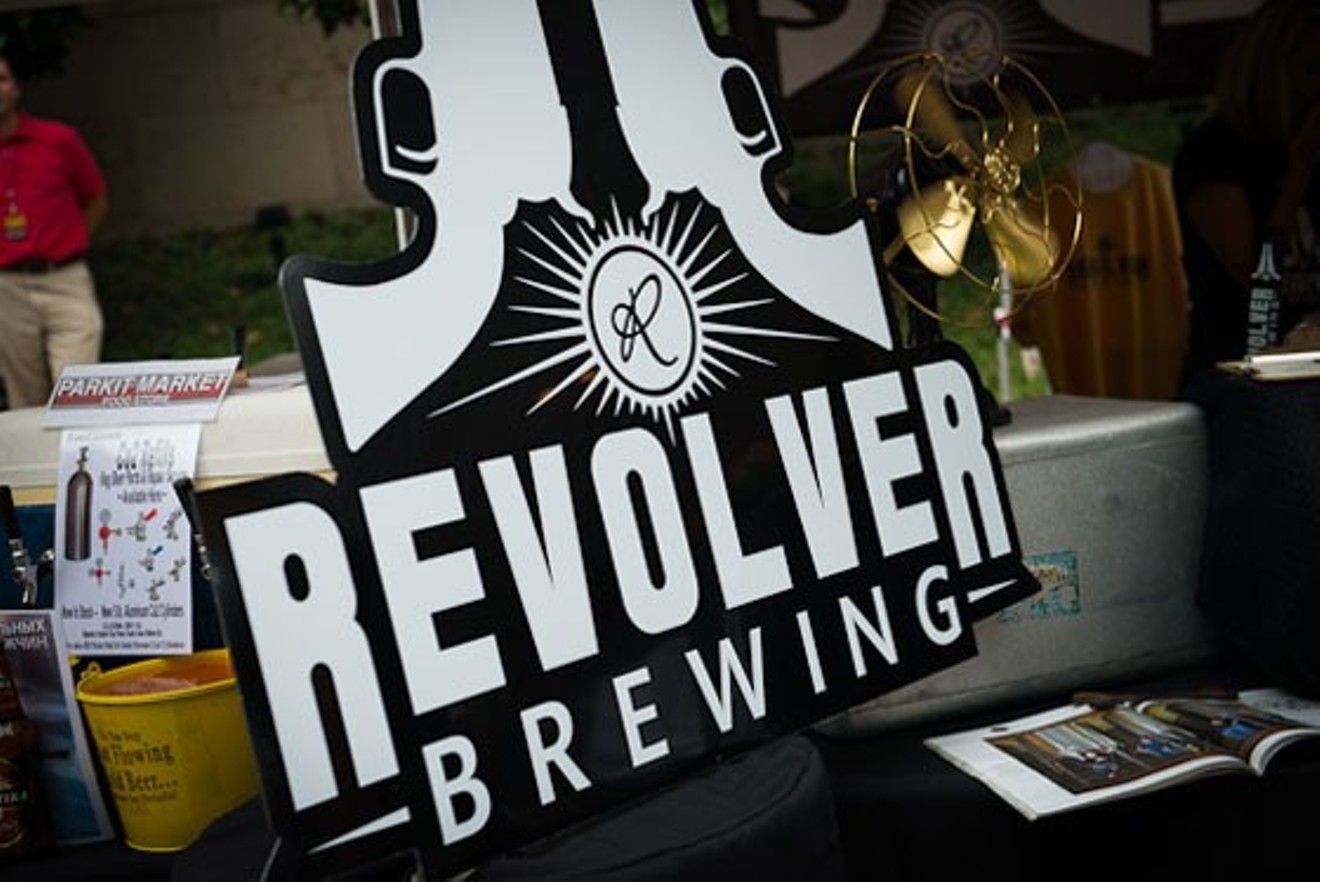"I have to say that I think Blood and Honey tastes a little different lately," Scott writes of Revolver Brewing's uber-popular flagship ale made with two-row barley and wheat, blood orange peel, Texas honey and spices. "It seems more filling and less crisp. I’m no beer expert, but I drank a lot of B&H before the sale, and I was hoping this wouldn’t happen. My question is, how does one determine if/when the parent company has changed the recipe or brewing process of a craft beer they purchased? I doubt it’s public information, but there’s got to be a way to find out, right?"
The sale that Scott's referring to? Granbury-based Revolver Brewing was acquired by Tenth and Blake Beer Company, the craft and import division of MillerCoors, in August 2016. At the time, owners said they intended to stay on at the brewery and that it would continue to operate independently, but with the resources of a major mass-market beer company. So far, that seems to be true.
“This partnership will allow us to maintain our brewery and operations in Granbury, while providing us with the additional resources to invest in and accelerate the growth of the Revolver brand in Texas," Rhett Keisler, Revolver Brewing co-founder and president, said at the time.
But buyouts are a contentious topic in the craft beer industry, and many beer-drinkers were convinced that their favorite beers would change. "I'm skeptical but I'll support them as long as the beer doesn't change," one Revolver fan wrote after the sale. "If and when it does, I'll be sad but I'll be out."
Local beer-drinker and homebrewer Valerie Gilbert says she's noticed a difference. "The Blood and Honey put their name on the map, and MillerCoors ruined it," she says. "It now tastes like soap with no orange flavor. I've tried it several places, kegged and bottled, over several different months. It's horrible. I won't touch it now. It might be the same recipe, but it def isn't the same taste."
Blood & Honey is by far one of DFW's most popular individual craft beers, and it's got a legion of loyal fans. So how do you find out if your favorite brewery has changed its recipes or brewing techniques after a major buyout? Well, you can just ask.
"There have been no major changes to the recipe or how we make Blood and Honey since the installation of the centrifugal clarifier back in 2014," says Grant E. Wood, Revolver's brewmaster.
"As you know, beer is made with ingredients that come from nature, and as brewers we have to deal with that," he says. "We don’t get the leisure of the wine-making industry to claim vintages or whether we have good crops or bad crops. We have made tweaks to the amount of hops, malts, spices and orange peel to compensate for Mother Nature’s curveballs, but the list of ingredients and the beer’s specifications remain unchanged. Our yeast and our suppliers for malt, hops, spices and honey all remain the same."
So what could account for a change in Blood & Honey's flavor profile?"With an eye towards expansion and future capacity needs, we have completed a couple of test brews at another similar-sized brewery. That capacity may be needed at some point in the future, but not at this time." -Grant Wood
tweet this
"In our experience, the flavor of Blood & Honey and all Revolver beers can be most impacted by freshness and storage conditions," Wood says. "No preservatives or stabilizers are used in our beers, so age and exposure to heat or sunlight can meaningful impact a beer's flavor. We work with our wholesaler partners to do our best to get fresh beer to market and specify that it is handled properly every step along the way. We encourage anyone who has a poor experience with Revolver to contact us directly. We take quality very seriously and want to make sure we always put our best foot forward."
All of Revolver's beer is still made in Granbury, Wood says, but "with an eye towards expansion and future capacity needs, we have completed a couple of test brews at another similar-sized brewery. That capacity may be needed at some point in the future, but not at this time."
So there you have it: According to the man who brews it himself, Blood & Honey hasn't changed, and Revolver doesn't intend for it to change anytime soon. Is it possible that just knowing about Revolver's buyout by a major beer company could convince drinkers the beer tastes different, even when it's brewed the same? Maybe. But Revolver stands by their assertion that it's business as usual in Granbury.
Have you noticed a change in Blood & Honey since the acquisition?












